President Mohamed Nasheed of the Maldives
“The Maldives stands at the climate change frontline. So it has always been crystal clear to us what must be done. But what happens to the Maldives today, will happen to others tomorrow. The Monitor helps to bring that clarity of vision to the entire world. We aim to become carbon neutral as a country by 2020. Those who follow our lead and adopt renewable energy and green technologies will be the winners of the twenty‐first century.”
President José Ramos Horta of Timor-Leste
“It is crucial to have a tool like this to get through the message that the vulnerabilities of poor and fragile nations are manifold and need addressing each and every one of them. Tackling climate change is far behind schedule and the consequences of that inaction are being paid out with lives in the countries worst affected.”
Rajendra Pachauri, Chairman of the IPCC; Director General of TERI
“This report provides a basis for discussion and debate on key vulnerabilities resulting from climate change, thereby enabling policy makers and the public to bring the issues of impacts and vulnerabilities into the mainstream of policymaking. Against that objective this report makes a major contribution.”
Helen Clark, Administrator, United Nations Development Programme
“The findings of the Climate Vulnerability Monitor remind us that climate change hits the most vulnerable people the hardest. A strong focus on adaptation can help protect people’s livelihoods and strengthen their resilience in an uncertain climate future. It is therefore vital that adaptation is built into national development strategies.”
Michael Zammit Cutajar, Former Executive Secretary of the UNFCCC
“Vulnerability and adaptation to long-term climate change are new challenges to all countries. This report offers thoughtful analysis of the types and degrees of vulnerability and of possible adaptation responses. It should be read by policy-makers involved both in implementing national adaptation plans and in funding adaptation actions in other countries.”
Hans Joachim Schellnhuber, Founding Director of the Potsdam Institute for Climate Impact Research
“This report shows that a dual strategy is imperative. On the one hand global warming needs to be limited to 2°C, or even less. On the other hand it becomes crystal clear that without massively reducing vulnerability by appropriate adaptation measures the future will not be manageable.”
John Ashton, the UK’s Foreign Secretary’s Special Representative for Climate Change
“Our food, water, energy and climate security are interconnected and inseparable; plentiful, affordable food requires reliable and affordable access to water and energy. Only by striving for a binding global deal reach through the UN can we ever hope to deal with this enormous challenge.
We must all take responsibility for this threat. Failure to respond to climate change will intensify competition for resources and shrink the political space for cooperation. It is an affront to fairness, since it puts the greatest burden on those who have done least to cause the problem and are least able to deal with its consequences.
It is therefore essential that we understand fully the effects of climate change on the most vulnerable countries – those on the Climate Front Line. Their voices must be clearly heard if we are to build the political consensus necessary for effective global action.”
Hansjoerg Strohmeyer, Chief , Policy Development and Studies Branch, United Nations Office for the Coordination of Humanitarian Affairs, (OCHA)
“The quantitative assessments of vulnerability and adaptation actions in this report will help guide humanitarian efforts to protect the poorest and most vulnerable from the impacts of climate change. “
Pierre Encontre, Chief of Special Programmes of the Division for Africa, Least Developed Countries and Special Programmes of the UN Conference on Trade and Development (UNCTAD)
“The Climate Vulnerability Monitor is a precious input to the burning international debate on achieving a better differentiated treatment of developing countries. So far, international financial support to the global fight against climate change has mainly benefited emerging countries. At the same time, adaptation fund beneficiaries have been either developing countries considered in an undifferentiated manner, or the Least Developed Countries (LDCs) by virtue of concessionary status. Overall, whether there is equity in the global climatic cooperation arena is debatable, as many of the countries suffering most from climate change and in greatest need of relevant aid are elsewhere: they are small non-LDCs (middle-income countries) with productive capacities that are highly vulnerable to climate change effects. The capacity of these countries to cope with this vulnerability challenge autonomously is well overestimated. States such as El Salvador and Mauritius are among them, as will soon be Maldives after it graduates from Least Developed Country status (1st January 2011). Compensating the acute disadvantages this segment of the developing world suffers from implies that a solid, credible assessment tool for doing justice to all be developed, and accepted internationally. The Climate Vulnerability Monitor stands a strong chance of soon meeting this paramount need, a need that will prevail regardless of Cancun’s results.”
Teresa Ribera, Spanish Secretary of State for Climate Change (2008 to 2011)
“The Climate Vulnerability Monitor provides sound information which can be easily understood by anyone who wants to read that information. This will give us an indication of how vulnerable we all are. We need to understand what we have today, and what is the trend for the years to come, so as to assess the type of decisions that any public or private player wants to take under this context, avoiding any additional risk that can be managed, in advance.”
José María Figueres, Former President of Costa Rica & DARA Board Member
“The Climate Vulnerability Monitor is a very important tool that can be used to measure the impact of climate change on communities, countries, and peoples around the world. What we cannot measure, we cannot affect. We need to be able to measure the impact of climate change, so that through proactive policies from government sides, positive interventions from the business community, and NGOs around the world, we can help mitigate the effects of climate change, and thus provide better livelihoods for people on our planet.“
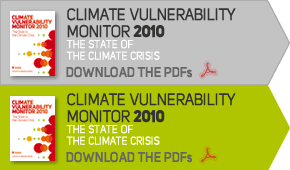
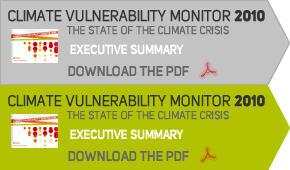

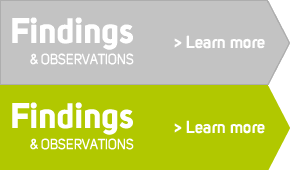
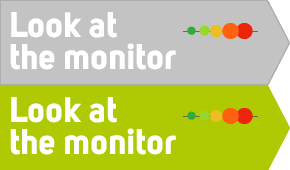
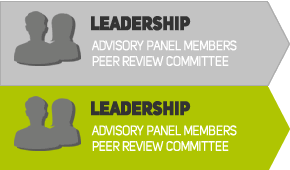
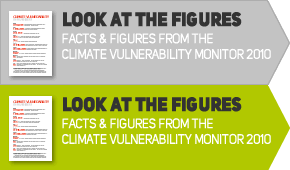
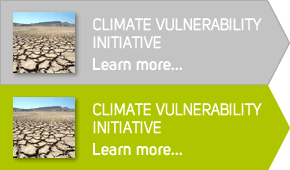

Share this